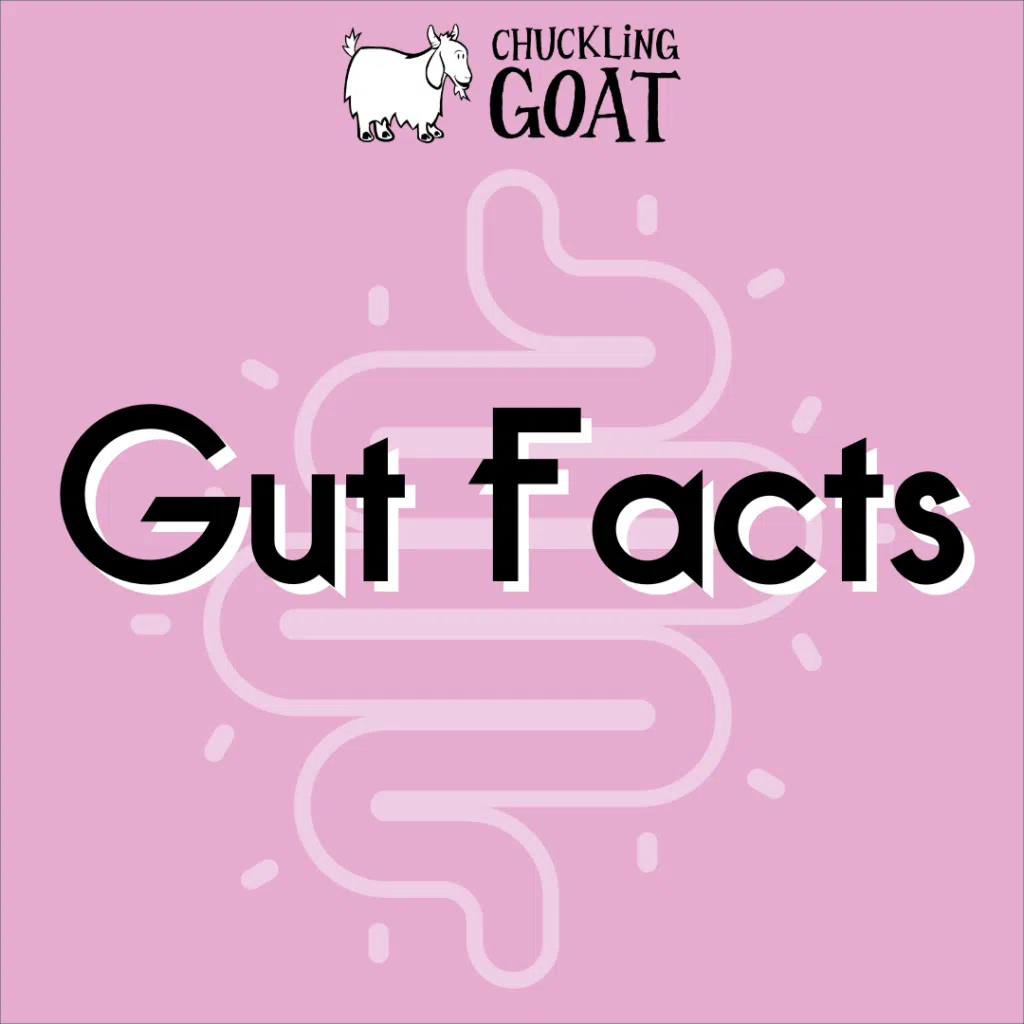1. What is the gut?
The gut starts with the mouth and teeth and finishes at the end of the large intestine. It includes the oesophagus, the stomach, the small intestine, the colon or large intestine, the pancreas, the liver, and the gall bladder.1https://www.webmd.com/heartburn-gerd/your-digestive-system
2. Size matters
Your gut is a big deal. It’s a 9m-long organ with between 800 and 900 folds and would cover an entire tennis court if laid out flat.
It makes up roughly 70% of your immune system and contains 1.5kg to 2kg of bacteria – more than the weight of your brain. 🧠2https://www.healthline.com/nutrition/gut-microbiome-and-health
3. Gut feeling
Guts have been called a ‘second brain’ because if the nerve between the brain and gut (the vagus nerve) were cut, the gut would function independently.
The gut produces more neurotransmitters – which affect mood and behavior – than the brain does.3https://www.ncbi.nlm.nih.gov/pmc/articles/PMC5641835/
4. Unique microbiomes
Everyone’s gut is unique. Even identical twins, who share 99.5% of their genes, only share about 20% of their microbiomes.🦠4https://www.ncbi.nlm.nih.gov/pmc/articles/PMC4430908/
5. Self-cleaning
The gut also has its own cleaning system. An hour after eating, the clean-up starts with a powerful wave of peristalsis moving through the tubes. This distinctive pattern of movement is thought to move along any undigested food.5https://my.clevelandclinic.org/health/body/22892-peristalsis
6. Sleep in on the weekends
Don’t feel guilty for skipping brunch to get an extra hour under the covers, especially if you haven’t been sleeping right during the week.😴
Researchers are still looking into the gut-sleep relationship to verify if improving your gut health will affect sleep, but there’s definitely a connection between poor sleep and the bacterial environment of your gut.
Getting enough sleep helps lower cortisol levels and allows time for the gut to repair itself. So slide your sleep mask back down over your eyes and embrace your next late morning.6https://www.healthline.com/health/digestive-health/things-your-gut-wants-you-to-know#7.-Sleep-in-on-the-weekends
7. Slow and steady wins the race
If you’re a slow eater, pat yourself on the back! Taking time to chew your food actually helps jump-start the digestive process. As you break down your food into smaller pieces with your teeth and stimulate saliva production, you also signal to the rest of your body that it’s time for the digestive system to get to work.7https://www.healthline.com/health/digestive-health/things-your-gut-wants-you-to-know#7.-Sleep-in-on-the-weekends
8. Keep calm and digest
Stress produces an influx of adrenalin, which shuts down digestion and can cause bloating, so take deep breaths and relax while eating.🧘8https://www.healthline.com/health/stress/effects-on-body
9. Strong stuff
Stomach acid is strong enough to burn your skin, but it does not harm the inside of your stomach because of the thick lining of mucus that protects it. The acid is churned with your food as part of the digestive process.9https://www.healthline.com/health/how-strong-is-stomach-acid
10. It gets lonely without prebiotics
It’s not enough to simply take a probiotic that introduces good bugs into your system. Those bugs are living organisms, and they need to be fed in order to do their job properly. Prebiotics are types of dietary fibre that feed the friendly bacteria in your gut. Prebiotics feed probiotics 💪10https://www.chucklinggoat.co.uk/global-prebiotic-week/
For more gut-related information, take a look at our Gut Health Express blog!
Questions? Contact one of our Nutritional Therapists via live chat 8 am to 8 pm on weekdays for bespoke advice on gut wellness.
References
- 1
- 2
- 3
- 4
- 5
- 6
- 7
- 8
- 9
- 10














